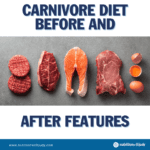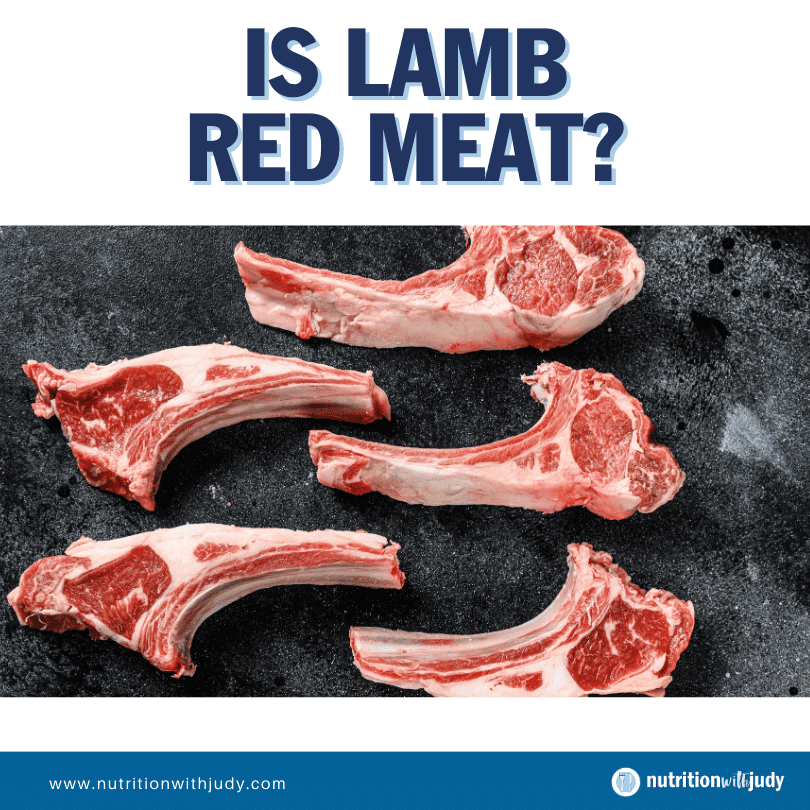

Is Lamb Red Meat?


In the realm of nutrition, particularly within the carnivore diet, understanding the types of meat and their properties is crucial. One common question we encounter is, “Is lamb red meat?” This inquiry is significant as it affects dietary choices within the carnivore diet framework. Lamb, known for its unique flavor and nutritional profile, often raises this question due to its position between commonly recognized red meats like beef and lighter meats like chicken.
What Is the Carnivore Diet?
At its core, the carnivore diet is a regimen that emphasizes the consumption of animal-based foods while eliminating plant-based foods. It’s a diet that harks back to the ancestral ways of eating, focusing on meat, fish, eggs, and dairy products. This diet’s benefits have been reported in various health areas, including enhanced mental focus, increased energy levels, and improved digestive health. Its simplicity and focus on high-quality animal proteins make it a compelling choice for those looking for a straightforward yet effective nutritional strategy.
Which Carnivore Diet Option Is Right for Me?
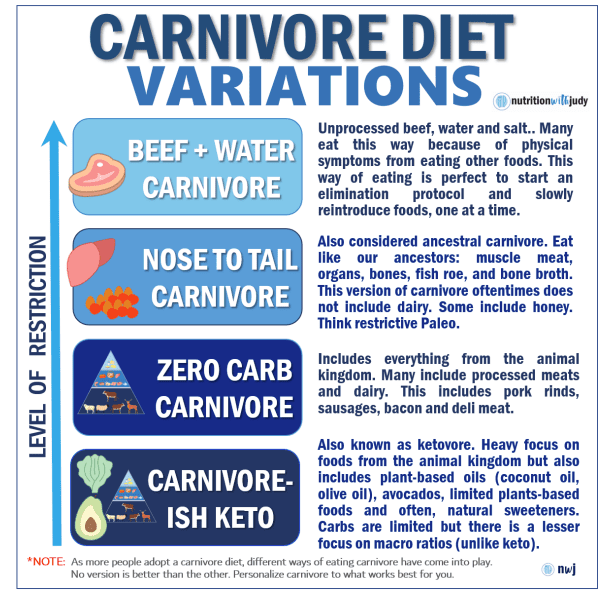

Choosing the most suitable carnivore diet variation is a personal decision, influenced by one’s health goals, dietary preferences, and any specific health conditions. Options range from inclusive diets that encompass a wide variety of animal-based foods to more restrictive versions like a beef-only diet. Each variation has its own set of benefits: broader diets offer nutritional diversity, while stricter versions may be more suitable for those with specific dietary sensitivities or digestive issues. The key is to align the diet with individual health needs and lifestyle preferences. Learn more about the different carnivore diet variations here.
Is Lamb Red Meat?
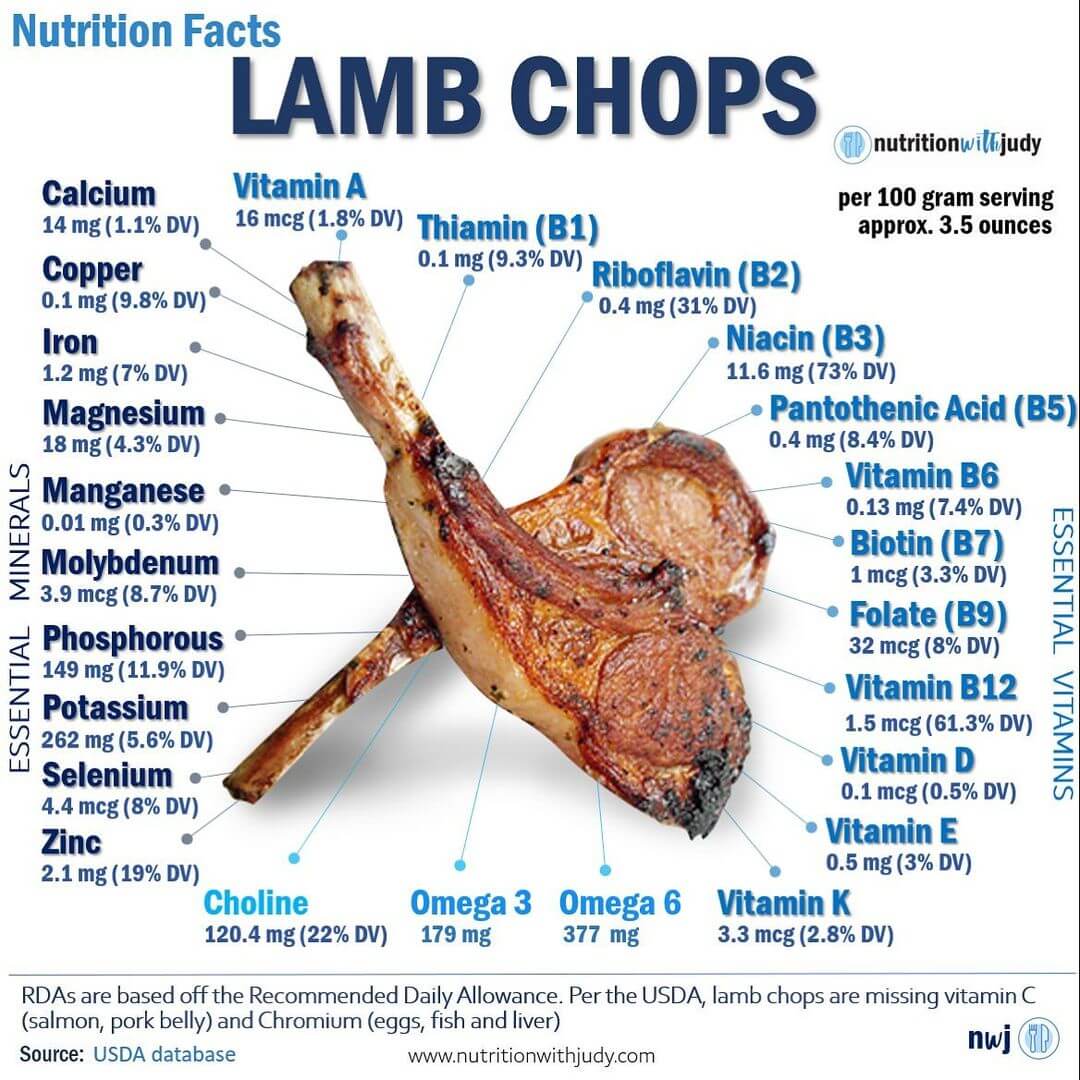

Lamb is indeed classified as red meat, a category that has been subject to much debate and misunderstanding over the years. Red meats like lamb, beef, and pork are distinct from white meats (such as chicken and turkey) in several nutritional aspects. One of the primary differences is the higher myoglobin content in red meats, which is responsible for their darker color. This myoglobin not only contributes to the color but also indicates a richer content of iron and other minerals.
Nutritionally, red meats are powerhouses, packed with essential nutrients that are sometimes less abundant in white meats. Red meat such as lamb is an excellent source of high-quality protein, essential amino acids, B vitamins (particularly B12), iron, zinc, and selenium. These nutrients are crucial for a variety of bodily functions, including brain health, immune system support, and the formation of red blood cells.
Unfortunately, red meat has been wrongfully demonized for many years, often being inaccurately linked to various health issues. Recent studies, however, have started to challenge these misconceptions, showing that when consumed as part of a balanced diet, red meat can be a healthy and nutritious option. It’s important to note that the quality of the meat and the method of preparation can affect its health benefits. While grass-fed red meat is often more nutrient-dense compared to its grain-fed counterparts, many people heal and thrive with conventional red meat.
In the context of the carnivore diet, understanding the nutritional value of red meat is crucial. It’s not just a source of protein; it’s a nutritional superfood that provides a range of essential nutrients often lacking in other food types. Lamb, as a red meat, stands out for its rich flavor and nutrient density, making it a valuable addition to the diet.
With this expanded understanding of lamb as a red meat and its nutritional importance, we can appreciate its role in a carnivore diet not just as a dietary component, but as a vital source of nutrition.
Which Carnivore Diets Include Lamb?
Lamb is a versatile and nourishing option included in most variations of the carnivore diet, except for the strict beef-only version. An important advantage of lamb is its digestibility. For some individuals, particularly those with sensitive digestive systems, lamb can be easier to digest compared to other red meats. This ease of digestion makes lamb an appealing choice for people transitioning to a carnivore diet or those with certain gastrointestinal conditions.
Another significant aspect of lamb is its typically lower histamine content. Unlike many other red meats, lamb is usually not aged, which means it has a lower histamine level. This characteristic is particularly beneficial for individuals who are sensitive to histamines or cannot afford to buy from farms offering unaged meats. By providing a lower histamine option, lamb becomes an accessible and suitable choice for a wider range of people following the carnivore diet.
Should I Include Lamb In My Carnivore Diet?
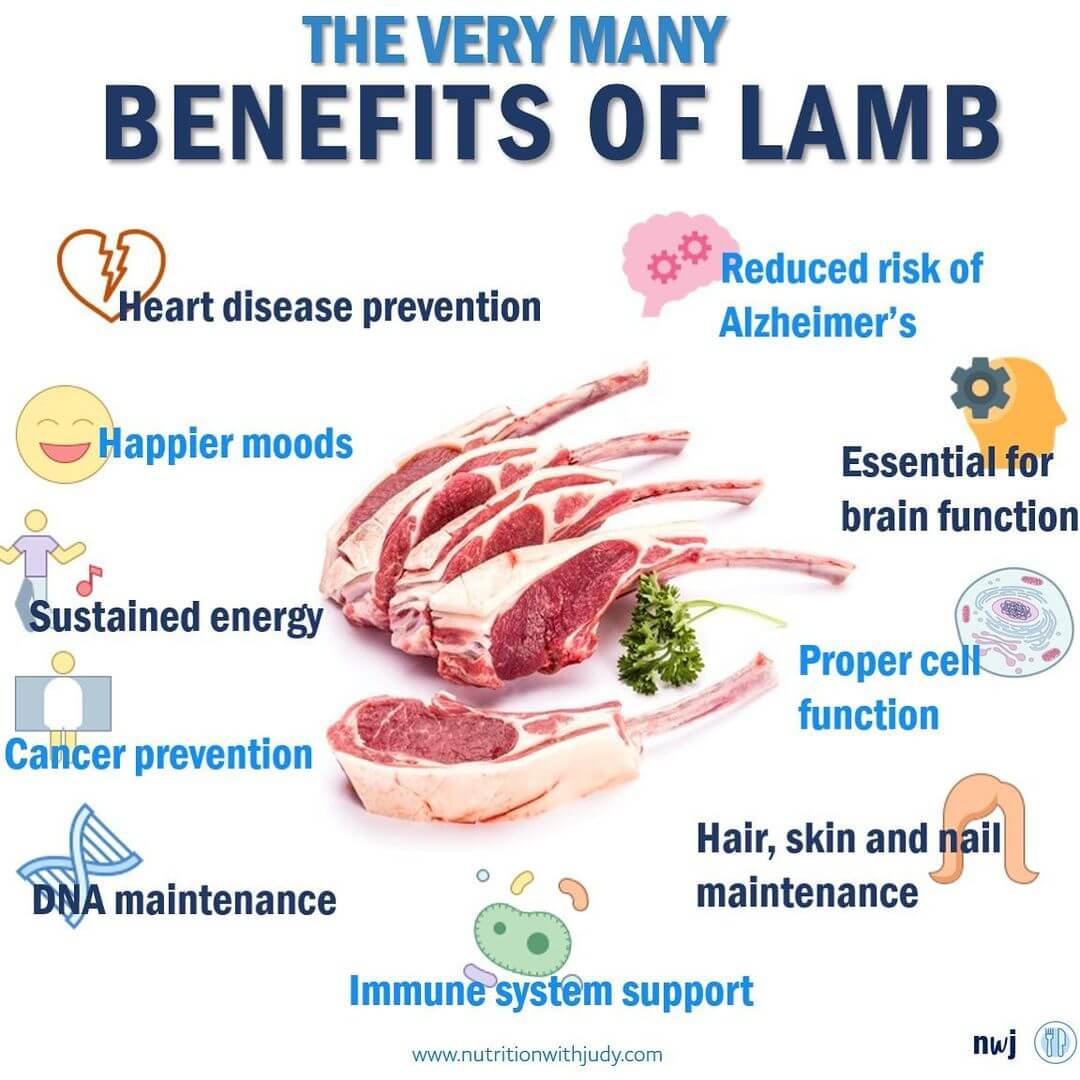

Including lamb in the carnivore diet is a common practice, mainly due to its satiating properties. Lamb and other ruminant meats are rich in nutrients that contribute to a feeling of fullness and satisfaction, an important factor in maintaining any diet.
Lamb is packed with exclusive nutrients that offer various health benefits. It is an excellent source of high-quality protein, essential amino acids, and is particularly rich in vitamin B12, zinc, and iron. These nutrients are vital for brain health, immune function, and energy production. Additionally, lamb contains unique fats, such as conjugated linoleic acid (CLA), known for its potential anti-inflammatory and fat-burning properties. Including lamb in your diet can therefore support overall health and well-being, making it a valuable addition to a carnivore dietary regimen.
Grass-Fed Lamb vs. Grain-Fed Lamb
When choosing lamb for a carnivore diet, the distinction between grass-fed and grain-finished lamb is crucial, especially for individuals with autoimmune or chronic illnesses. Grass-fed lamb, which is raised on natural pastures and is never supplemented with grain, tends to have a higher nutrient profile and is often recommended for those with specific health concerns. The superior fatty acid composition and higher levels of certain vitamins in grass-fed lamb can be particularly beneficial in managing autoimmune conditions.
However, it’s important to acknowledge that grain-finished lamb can also be a part of a healing diet. Many individuals have successfully improved their health conditions while consuming grain-finished lamb. The choice between grass-fed and grain-finished lamb often comes down to factors like accessibility, affordability, and individual health needs. Both types of lamb can play a role in the carnivore diet, and the decision should be tailored to your specific circumstances and health objectives.
Prioritizing Ruminant Meats vs. Red Meat
In the carnivore diet, prioritizing ruminant meats over other red meats is a strategic choice grounded in nutritional science and digestive health. Ruminants, such as cattle and sheep, have unique four-chambered stomachs, an evolutionary adaptation that allows them to effectively convert grasses into high-quality proteins and fats. This process results in meat that is not only nutrient-dense but also easier to digest compared to non-ruminant meats.
The bioavailable nutrients in ruminant meats are a key factor in their prioritization. These meats are rich in highly absorbable forms of nutrients like iron, zinc, and B vitamins, which are essential for various bodily functions including energy metabolism, immune response, and neurological health. The high bioavailability means that these nutrients are more readily absorbed and utilized by the body, making ruminant meats particularly beneficial for health.
Moreover, ruminant meats tend to be more satiating than non-ruminants. This is due to their higher content of healthy fats and proteins, which play a crucial role in satiety and appetite regulation. This aspect is particularly important in a carnivore diet, where maintaining fullness and satisfaction with meals is key to dietary adherence and overall success.
People often prioritize ruminant meats in their carnivore diet for these reasons. The combination of ease of digestion, high nutrient bioavailability, and satiating qualities makes ruminant meats a superior choice for many following this dietary approach.
The Benefits of Red Meat for a Carnivore Diet
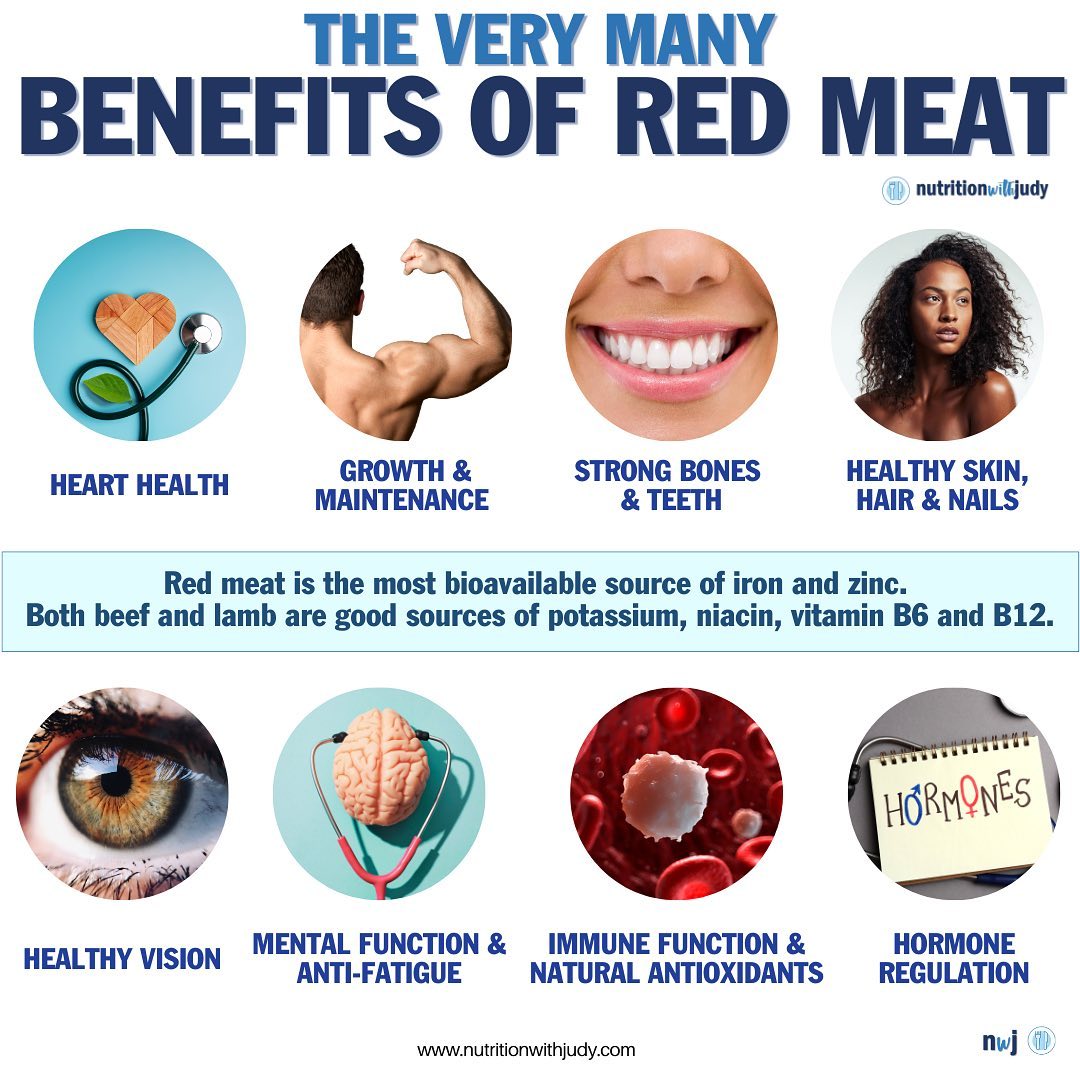

Red meat is an integral component of the carnivore diet, renowned for its exclusive and diverse range of nutrients. Here are some specific nutrients found in red meat and their roles in the body:
- High-Quality Protein: Red meat is a complete protein source, containing all essential amino acids necessary for muscle growth and repair, as well as for various cellular functions.
- Iron: Red meat is a rich source of heme iron, the form of iron most easily absorbed by the body. Iron is crucial for the formation of hemoglobin, which transports oxygen in the blood, and is essential for energy production and immune function.
- Zinc: This mineral, found abundantly in red meat, is vital for immune health, wound healing, DNA synthesis, and cell division.
- Vitamin B12: Red meat is one of the best sources of Vitamin B12, essential for nerve function, red blood cell formation, and DNA synthesis.
- Creatine: Abundant in red meat, creatine supports muscle growth and energy production during high-intensity activities.
- CLA (Conjugated Linoleic Acid): This fatty acid, found in red meat, has been linked to potential benefits such as improved body composition and reduced inflammation.
- Omega-3 Fatty Acids: While more commonly associated with fish, certain red meats (especially from grass-fed animals) also contain omega-3s, which are crucial for heart and brain health.
These nutrients make red meat a valuable part of the carnivore diet, contributing to its effectiveness and health benefits. The inclusion of red meat ensures a diet that is not only rich in essential nutrients but also supports a range of bodily functions from muscle maintenance to cognitive health.
Closing Thoughts On Lamb, Red Meat, and the Carnivore Diet
As we conclude our exploration of lamb in the context of the carnivore diet, it’s important to reflect on the key insights and recommendations gathered. Lamb, a nutritious and versatile red meat, plays a significant role in this diet, providing a range of health benefits due to its rich nutrient profile. It’s an excellent source of high-quality protein, essential amino acids, and is especially rich in vital nutrients like vitamin B12, zinc, and iron.
Lamb’s ease of digestibility makes it a suitable option for many, including those with sensitive digestive systems or histamine intolerances, due to its generally lower histamine content. This aspect broadens lamb’s appeal, making it a feasible choice for a diverse group of individuals on the carnivore diet.
When incorporating lamb into your diet, it’s beneficial to consider the type of lamb you consume. Grass-fed lamb, with its higher nutrient content and better fatty acid composition, is particularly recommended for those with autoimmune or chronic conditions. However, grain-finished lamb can also be part of a healthful carnivore diet, depending on individual health needs, accessibility, and affordability.
For those following the carnivore diet, lamb and other ruminant meats offer satiety and a wealth of exclusive nutrients that contribute to overall health and wellness. The inclusion of lamb in the diet supports a nutrient-dense approach to eating, aligning with the principles of the carnivore diet.
In closing, is lamb red meat? Yes, it is. And it’s not just a dietary component but a nutritional powerhouse within the carnivore diet. It offers a balance of taste, nutrition, and health benefits, making it an excellent choice for those seeking a simple yet effective nutritional strategy. Whether you are new to the carnivore diet or an experienced adherent, consider the role of lamb in your dietary plan, tailoring your choice to your specific health goals and needs.
Work With Our Trusted Carnivore Diet Functional Nutritional Therapy Practitioners
The Nutrition with Judy practice is honored to be a trusted carnivore diet practitioner support serving clients from around the globe. We’re passionate about helping our clients achieve root-cause healing in order to lead the best quality of life possible that’s nearly symptom-free. Our team is dedicated to educating our community about the incredible benefits of the carnivore diet. We welcome you to explore our free resources and are always available to support you through personalized protocols. Our Symptom Burden Assessment (SBA) is the perfect starting point for discovering your root cause and is required to work with our team— you can learn more in-depth about this powerful tool here.
Start your root-cause healing journey today and contact us any time with any questions or concerns.
DISCLAIMER: This content is for educational purposes only. While we are board-certified in holistic nutrition and are nutritional therapy practitioners, we are not providing medical advice. Whenever you start a new diet or protocol, always consult with your trusted practitioner first.





